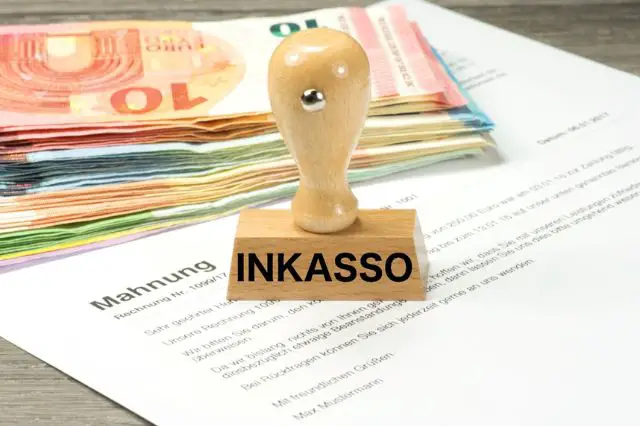Finance
What to Expect with Refinansiering Med Inkasso?


Being in debt is never an easy situation to be in. It can feel overwhelming, hopeless, and terrifying all at the same time. However, if your outstanding loan is sent to collections, this can add even more stress to the situation. Nobody wants their accounts to go into collections, but it happens. See more about debt collections when you click here.
You might have gotten into a situation where you got sick, and you pay your hospital bills with credit cards. Others need to replace their heating system as winter sets in, and the payment also goes to the credit card. Before long, you have an outstanding balance that you can’t afford, and you find yourself in a situation where your phone rings a lot of times in a day from unknown numbers.
So, how do you get yourself out of the situation? First, know that you are alone, as millions of consumers have experienced getting their loans sent into collections. This can be stressful, but here are some things that you need to know about this.
What is Debt Collection?
Debt collection is the process of pursuing payments on debts owed by individuals or businesses. This can include contacting the borrower by phone, mail, or email. They might also send you to demand letters or take legal action if necessary.
If you’re behind on payments, you may receive calls or letters from a collector. It’s essential to know your rights under the law in your country, and most of them include prohibiting collectors from using unfair techniques when collecting payment for the amount owed.
If you’re struggling to make ends meet, options are available to help you get back on track. You can negotiate with your creditors to try to reach an agreement on a payment plan or settlement. You can also seek assistance from a nonprofit credit counseling agency so you can be in control of your finances.
When Does a Loan Account Get Sent to Collections?
When a bill becomes past due, you will have limited time to pay everything before your account gets sold to various collection agencies. For credit cards, the unpaid amount is sent after 30 days after the amount remains unpaid. Mortgages and foreclosures can take longer than consumer debts,
If you find yourself dealing with an agency, you need to be honest with them about your current financial situation as well as the other loans that you have at the moment. Keep records and work out what you can currently afford to pay. There are also options like refinansiering med inkasso that lets you refinance everything, so you won’t have to deal with phone calls and people coming to your home to collect payment. Refinancing can help you get control over your debt, and you might even get lower interest rates.
What to Do When This Happens to you?


1. Take a Deep Breath
When you receive a phone call or letter from the agency, stop first and take a deep breath. You need to evaluate your current financial standing and determine your options. Don’t pick up the phone and call an agent because the conversation will not generally result in the client’s best interests. You might be forced into paying everything in full.
2. Negotiate
If you know that the loan is yours, negotiate and talk to a representative. A settlement should be a realistic amount you can pay every month after your bills, mortgage, groceries, and utilities. Others have a statute of limitations where a loan can close within three to six years. If you’re unsure what these limitations are in your area, you can ask questions to an attorney to get more information.
3. Call the Agency
After coming up with a plan and evaluating your situation, this is the best time to call the collectors. You must contact them within 30 days of receiving a letter or call to verify the loan. While you’re talking to one of their representatives, take note of their interest rate and the current balance. Let them make an offer first and negotiate.
4. Hire Third-Parties to Help You
When you find yourself feeling distraught and overwhelmed with the whole thing, you should seek an attorney or private company to help you. They will know what to do, and you can settle your debt faster when you’re not the one being harassed by the collectors.
How to Deal with a Collections Agency?
1. Communicate with your creditor. If you can’t pay your bill, communicate with your creditor as soon as possible to explain the situation and try to work out a payment plan.
2. Know your rights. Debt collectors must follow certain rules when contacting you, and you have rights under the law. Be familiar with these so that you can hold them accountable if they violate them.
3. Don’t ignore the problem. It won’t go away independently, and ignoring the letters and calls will only worsen the situation.
4. Get help if you need it. If you’re feeling overwhelmed, some organizations can help you manage your debt and deal with creditors. Find out tips on how you can manage your debt in this link: https://www.thebalancemoney.com/how-to-manage-your-debt-960856.
What are the Alternatives?
There are a few alternatives to dealing with collections agencies, but none are particularly ideal. You could try to negotiate a payment plan, although they may be unwilling to work with you if you’re already behind on payments. You could also try consolidating your debt through a personal loan or credit card with a 0% APR option. These can get you lower interest rates and monthly payments. However, both of these options can negatively impact your credit score, making it even harder to get out of debt.
If you’re struggling to make ends meet and dealing with collections agencies is becoming too much of a burden, consider filing for bankruptcy. This will give you a fresh start and allow you to reorganize your finances, but it should only be regarded as a last resort. Bankruptcy can stay on your credit report for up to 10 years, making it difficult to get approved for new loans or lines of credit. Before making any decisions, speak with a financial advisor or attorney who can help you understand your options and the potential consequences.
Finance
How Cash Buying is Reshaping the Property Selling Process


In recent years, the dynamics of the property market in the UK have undergone a significant transformation, with the rise of cash buying playing a pivotal role in reshaping the traditional property selling process.
This shift has introduced new opportunities and challenges for sellers, buyers, and industry professionals alike, streamlining transactions and altering expectations on both sides of the market.
The Rise of Cash Buying
Cash buying, where a property is purchased without the need for a mortgage, has become increasingly popular. This method offers a stark contrast to the traditional, often lengthy process of property acquisition, which typically involves securing a mortgage, undergoing extensive credit checks, and navigating a maze of legal requirements.
Accelerated Transaction Times
One of the most appealing aspects of cash buying is the significant reduction in transaction times. Without the need to wait for mortgage approvals or navigate the bureaucratic hurdles associated with loan acquisition, cash transactions can often be completed in a fraction of the time required for traditional sales.
This speed and efficiency are not only beneficial for buyers, eager to move into their new homes, but also for sellers who are looking to complete the sale swiftly and with minimal fuss.
The Impact on Market Dynamics
Cash buying has also had a profound impact on market dynamics, particularly in highly competitive areas. Sold online estate agents London captures the essence of the digital transformation in the property market, where platforms now facilitate rapid, direct transactions, often involving cash buyers.
This shift has led to increased liquidity in the market, enabling quicker sales and often resulting in closer to asking price offers, as the traditional barriers to sale are removed.
The Changing Role of Estate Agents
The rise of cash buying has necessitated a change in the role of estate agents. No longer just mediators between buyers and sellers, agents now must navigate a landscape where speed, efficiency, and an understanding of cash transactions are paramount.
Estate agents are increasingly leveraging online platforms to match cash buyers with sellers, streamlining the process, and offering a more dynamic service tailored to the modern market’s needs.
Digital Platforms and Market Access
Digital platforms have become crucial in connecting cash buyers with sellers, offering a broader reach and access to a wider array of properties. This digital shift has democratized access to the property market, allowing for a more inclusive range of participants, from seasoned investors to first-time buyers looking to avoid the traditional mortgage route.
Benefits and Considerations for Sellers
For sellers, the appeal of cash buying is clear: quicker transactions, reduced risk of sales falling through, and the elimination of chain dependencies. However, it’s essential for sellers to conduct due diligence on their prospective buyers, ensuring that funds are verified and the transaction is secure.
Navigating the Future Landscape
As the property market continues to evolve, both sellers and buyers must adapt to the new norms introduced by cash buying. For sellers, understanding the benefits and potential pitfalls of cash offers is crucial. For buyers, the ability to move quickly and secure properties without the need for mortgage approval can be a game-changer, particularly in competitive markets.
A New Era for Property Transactions
The shift towards cash buying is indicative of a broader trend towards efficiency and speed in the property market. As technology continues to advance, we can expect further innovations that will streamline the buying and selling process, making it more accessible, efficient, and transparent for all parties involved.
Beyond the Conclusion: A Glimpse into the Future
As we look towards the future, the landscape of the property selling process will continue to be shaped by the trends of cash buying and digital transformation. This evolution promises a more streamlined, efficient, and flexible market, where opportunities abound for those willing to adapt and embrace the new paradigms of property transactions.
Finance
Everything You Need to Know about SVG Permit When Making a Decision


Many companies strive to simplify the process of receiving a work permit, so they prefer offshore jurisdictions.
SVG offers favorable legislation, low financial costs for getting an SVG Forex license, and a favorable tax policy. If you plan to engage in brokerage activities in the market, you will need to obtain a permit and meet the Regulator’s demands.
How does permitting control work?
The FSA exercises control over non-banking companies and helps ensure stability through a competent assessment of possible risks associated with firms’ activities. Through monitoring and on-site audits, the FSA regularly analyzes various financial indicators and checks organizations’ reporting for compliance with established demands.
The state has many legislative documents that form the legal basis for providing financial services. Let’s list some of them:
- Financial Services Management Law – regulation of financial activities and issuance of licenses;
- Securities Law – controls the activities of firms whose activities are related to the trading, issuance, and exchange of securities (including the Forex market);
- Memorandum of Requirements for BC and LLC – defines the demands for organizations in the Forex market;
- Law on International Business Companies – controls the activities of firms, including in the market;
- Currency Control Act – regulation of foreign exchange financial transactions and supervision of compliance with established demands.
It is only part of the legislative framework. There are also laws to combat AML/FT, ensuring cybersecurity and protecting consumers from financial risks.
Demands
To obtain a permit, you must fulfill several demands. Your firm must have at least 1 director, 1 shareholder, and a secretary. One of the directors must be a resident of this area. You must register a firm office and give the company a unique name using the LLC form. You must also present valid licenses from the states where the organization provides financial services. It is critical to comply with local legislation and include an AML and KYC (know your customer) policy in the company’s activities.
Stages of starting a firm
Let’s consider what stages an organization will need to go through to register the legal activities of a broker in this area.
Decide on the firm name
The company name must be unique and not appear in the SVG company register. In addition, the company abbreviation must imply the LLC form, and Limited or Ltd must be added at the end of the name. Using a name that would indicate royal or government institutions is strictly forbidden.
Collect a package of papers
In the first stage, your firm will be required to provide papers, which will include the following:
- fill out an application for a permit;
- notarized identity cards, confirmation of registration, and certificate of good conduct for the company’s staff;
- corporate documents;
- office lease agreement with a registered legal address;
- a detailed business project indicating the structure and activities of the company;
- a document confirming the availability of sufficient financial resources;
- implementation of internal control (AML, KYC, audit, reporting).
Also, at this stage, it is necessary to pay the state licensing fee (225 euros) and the annual fee (4000 euros). Before submitting the application and papers, carefully study the requirements of the Regulator.
Apply for business registration
Next, you register the firm in the Register of Companies based on the requirements. The registration process can be completed remotely within a few days. The application and the collected package of papers are sent to the Regulator, who will carefully check them for compliance. If there are inaccuracies, the regulator may request additional data.
Open a bank account
The next step will be to open a corporate account for the firm. It would be best if you chose a bank that meets your financial demands, supports the activities of brokers, and follows the AML policy.
Obtain permission
If the regulator is convinced of the reliability of your business and he has no comments regarding the provided papers, you will receive a permit.
Finance
Indian Rupee Refuses to Budge Despite Multiple Headwinds


Despite several challenges, the Indian rupee has remained stable in global finance. Despite global economic turbulence, the Indian currency’s exchange rate of 83.26 against the U.S. dollar has been stable. The rupee has survived rising U.S. bond yields, oil price volatility, the strength of the U.S. currency, and large investment portfolio outflows.
The Indian rupee’s resiliency is due to the RBI’s planned and methodical foreign exchange market actions. The RBI’s aggressive measures have stabilized the currency and reduced volatility. The rupee’s resilience shows how central banks like the RBI protect currency stability in the global financial climate. The essay discusses the factors that keep the rupee stable and the foreign exchange market’s complexity, which affects its stability during global economic downturns.
What is Forex’s Role in the Rupee’s Resilience
The Indian rupee has shown resilience in the complex world of forex. The currency’s exchange rate against the U.S. dollar is 83.26. With few fluctuations from its previous closing rate of 83.2550, this currency has shown consistency. In October, the rupee stayed inside a narrow trading range, with volatility at its lowest in years. The Reserve Bank of India’s proactive initiatives helped the economy weather numerous obstacles. In this perspective, FX markets are important.
The RBI has successfully intervened in spot markets, non-deliverable forwards, and futures using intentional and systematic tactics. These efforts have stabilized the Indian rupee and reduced volatility. These initiatives help maintain forex market equilibrium by limiting external impacts on currency valuation.
Despite rising U.S. bond yields, oil price fluctuations, the U.S. dollar’s strength, and major investment portfolio withdrawals, the Indian rupee has mostly avoided major losses. Foreign exchange scholars credit the Reserve Bank of India’s (RBI) consistent management of foreign exchange markets and stability for the rupee’s continuous appreciation. These metrics are mostly noticed in the worldwide foreign exchange market, which affects currency exchange rates.
The endurance of the Indian rupee and the RBI’s active forex market measures demonstrate the importance of this in national and global economies. These interventions provide market equilibrium and resilience during economic downturns, protecting the indigenous currency. Despite economic concerns, the Indian rupee remains a strong and resilient participant in the global foreign exchange market.
The rupee’s durability shows the complexity of foreign exchange markets and the importance of central banks like the Reserve Bank of India in maintaining currency stability. Foreign exchange (FX) is a major player in global finance.
Investor Sentiment and Risk Assessment
Investor sentiment and risk assessment depend on the Indian rupee’s resilience. Investors prefer the rupee’s stability during volatility due to its predictability. Investors prefer stable currencies, and the rupee’s resilience can boost investor confidence. Currency stability reduces investor fear, making India a desirable destination for money.
The currency’s ability to survive bad conditions may also improve risk assessment. In a world with global economic problems, a resilient currency is good. The rupee’s strength gives investors confidence, reducing currency volatility risks. In general, currency stability boosts investor sentiment and risk assessment, making India an appealing option for foreign investment.
Impact of Rising U.S. Yields and Economic Dynamics
The Indian rupee confronts a major challenge in the complex forex markets as long-term U.S. yields rise. The upward trend is primarily due to supply and demand pressures and the expectation that the Federal Reserve will keep interest rates high. Recently, the 10-year U.S. yield breached 5% and is now around 4.87% in Asian markets.
So, what is forex’s importance in this scenario?? Understanding the procedures requires focusing on foreign exchange. US yields, which affect foreign currency markets, affect currencies worldwide, including the Indian rupee.
The rise in US yields has changed risk perception, affecting worldwide finance. Foreign investors’ risk aversion has increased due to rising yields, affecting their investment decisions in emerging economies like India. In one month, foreign money outflows approached $2.5 billion. The significant capital outflow suggests investors’ reactions to global interest rate changes and a drive toward safer assets.
Do not underestimate this phenomenon’s impact on the FX market. Increased U.S. yields affect global investors’ portfolio preferences and risk evaluations. Foreign currency markets help move and adjust capital. The Indian rupee has persevered despite substantial challenges as currency traders and investors navigate the current economic climate.
The rise in long-term U.S. yields affects global currencies in foreign exchange and finance. This trend affects the foreign currency market, where currencies like the Indian rupee must maintain stability amid fluctuating global interest rates. The phenomena highlights the importance of foreign exchange (forex) in understanding and navigating the complex interaction of economic variables that affect currency value and strength worldwide.
The Middle East Conflict and Oil Price Volatility
Oil price volatility and the Middle East conflict have made the Indian rupee less stable. Brent crude recently rose 3%, causing prices to rise on Friday. The rupee’s exchange rate volatility has changed. Given India’s heavy reliance on oil imports to power its growing economy, these oil price trends are crucial. Thus, oil price variations directly affect the nation’s trade balance and the rupee’s worldwide currency strength.
What is forex’s role in understanding and addressing these dynamics? Forex trading, or the foreign currency market, is crucial here. Economic dynamics induced by oil price volatility and Middle East upheaval affect the rupee. The foreign exchange market reflects these factors.
The prolonged Middle East conflict has heightened tensions in a geopolitically dangerous region and caused a global ripple effect. Global market uncertainty is obvious and significant. It has caused oil price fluctuations and lowered market confidence. Capital outflows from Indian stocks have resulted from international investors’ conservatism due to market volatility.
These advances are important for foreign exchange trading. Geopolitical concerns and commodities like oil affect currency valuations, making forex markets vulnerable. Forex traders must carefully assess these dynamics to understand market volatility and predict currency fluctuations, especially in emerging markets like India.
Currency trading is even more complicated due to the Middle East conflict and oil price volatility. These factors affect currency values and stability, including the Indian rupee, beyond standard economic formulas. Forex dealers are realizing the Middle East crisis and oil price dynamics shape the forex market and the rupee’s durability. Forex is crucial to understanding and overcoming currencies’ many challenges in the global market.
Central Banks’ Policies and Outlook
The focus is currently shifting towards the forthcoming policy decisions of central banks worldwide. The Indian rupee’s stability depends on these decisions and their effects on global markets. In addition to the RBI’s strategic interventions, central banks worldwide’s decisions are expected to affect the rupee’s ability to absorb headwinds.
Financial markets will focus on central bank policies this week, including the BOJ, Fed, and BoE. These institutions are likely to make major financial decisions that could impact the world. These decisions, which affect currencies and trade balances, may affect the Indian rupee’s global currency market position.
Forex enthusiasts and investors are eagerly awaiting the BOJ policy pronouncement on Tuesday. This is because the central bank is considering raising its yield cap. The Bank of Japan (BOJ)’s actions could trigger market responses that affect the foreign exchange (forex) market.
Recently, the spotlight shifts to the Federal Reserve and its interest rate plans. The Federal Reserve affects currencies, trade patterns, and rupee stability in the worldwide foreign exchange market.
After the Fed’s decision, the Bank of England is expected to maintain its interest rate position on Thursday. The currency market pays attention to Bank of England (BoE) policies, despite appearing to agree with the Fed. The rupee’s stability depends on these central banks’ autonomous decisions and their combined effect.
The intricate dynamics of forex markets always raise the question of forex’s nature. Forex, or the foreign exchange market, is a key part of the global financial system and may adjust to central bank policies and their effects. Foreign exchange dealers, market participants, and policymakers will carefully scrutinize central banks’ speeches for hints and indications of their future actions.
Due to global currency influences, the Indian rupee is more sensitive to these events. Central banks, regardless of location, affect international exchange rates, particularly the rupee-U.S. dollar exchange rate. Policy decisions affect businesses, commerce, and daily life beyond theoretical economic notions. As India grows economically and trades globally, these international policy decisions affect the rupee.
The Indian rupee’s resilience is due to the complex interactions between global economic conditions, central bank tactics, and foreign exchange use. As the currency market reacts to central bank policy moves, the worldwide audience eagerly awaits their consequences on the Indian rupee. The rupee’s stability throughout difficult times shows its resilience and ability to adapt to the global economy. The forex market facilitates currency transactions, which has kept the rupee robust.
All in All
The rupee’s resilience amid economic hardships is a testament to its strength. RBI’s role in stability and volatility cannot be overstated. Despite the rapid rise in U.S. bond yields, oil price volatility, portfolio capital outflows, and the strength of the U.S. currency, the Indian rupee remains stable within a limited trading range, defying expectations.
With central banks worldwide preparing to reveal their policy options very soon, the rupee’s direction will be closely watched. The ongoing issues highlight the need for rigorous security protocols and law enforcement-crypto sector cooperation. A secure business environment is essential in a fast-changing world. This strategy protects user confidence and boosts ecosystem security, boosting its growth and resilience.
-



 Quotes4 years ago
Quotes4 years ago125 Inspirational Car Quotes and Captions to Celebrate Your New Car
-



 Growth4 years ago
Growth4 years ago188 Deep Hurt Quotes with Images
-



 Quotes3 years ago
Quotes3 years ago148 Romantic Love Quotes for Her from the Heart
-



 Quotes3 years ago
Quotes3 years ago185 Cute Boyfriend Quotes for the Guy You Love
-



 Quotes3 years ago
Quotes3 years ago141 Best Heart Touching Quotes about Love, Life, and Friendship
-



 Quotes3 years ago
Quotes3 years ago134 Time Flies Quotes for the Unforgettable Moments
-



 Quotes3 years ago
Quotes3 years ago122 Inspirational Kite Quotes That’ll Make You Wanna Fly Right Now
-



 Quotes4 years ago
Quotes4 years ago101 Powerful Black Women Quotes to Empower You







